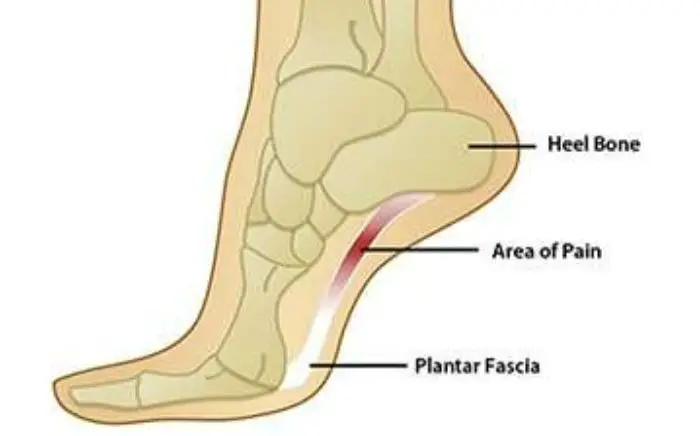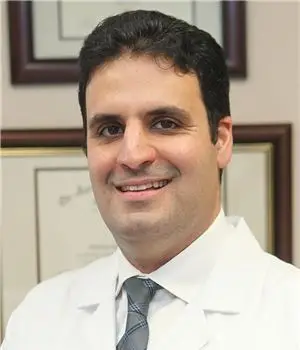ARCH PAIN
What is Heel Spur Syndrome?
Heel Spur Syndrome refers to a condition where a heel spur and plantar fasciitis occur together — a common and painful combination that leads to chronic heel pain, especially with your first steps in the morning or after long periods of standing.
At SoCal Foot and Ankle Doctors, located in Santa Monica and the Cedars-Sinai Medical Towers, we specialize in relieving heel pain caused by heel spur syndrome using both non-invasive therapies and advanced interventions to get you back on your feet comfortably.

What is a Heel Spur?
A heel spur is a pointed, calcium deposit on the underside or back of the heel bone (calcaneus). These bony growths form over time in response to chronic stress or tension at the insertion point of tendons or the plantar fascia.
- Plantar heel spurs are located underneath the heel and are often associated with plantar fasciitis.
- Posterior heel spurs form at the back of the heel, frequently linked to Achilles tendinitis.
What is Plantar Fasciitis?
Plantar fasciitis is the inflammation of the plantar fascia — a thick band of tissue stretching from your heel to the base of your toes. It is one of the most common causes of heel pain.
Typical symptoms include:
- Sharp, stabbing pain in the heel
- Pain that’s worst in the morning or after sitting
- Discomfort that returns after extended standing or walking
Causes and Risk Factors
- Repetitive stress from running, sports, or standing on hard surfaces
- Flat feet or high arches
- Obesity or sudden weight gain
- Tight calf muscles or Achilles tendons
- Improper footwear with little arch support or poor cushioning
Diagnosis
At SoCal Foot and Ankle Doctors, we perform a comprehensive evaluation, which may include:
- Clinical examination
- Digital X-rays to identify heel spurs
- Ultrasound or MRI for soft tissue assessment and chronic cases
Heel Spur & Plantar Fasciitis Treatment in Santa Monica & Cedars-Sinai
We tailor treatments based on your lifestyle, the severity of symptoms, and your response to prior therapies.
Conservative Treatment Options
- Custom orthotics to redistribute pressure and reduce tension on the plantar fascia
- Anti-inflammatory medications
- Night splints and stretching routines
- Supportive footwear guidance
- Physical therapy to improve flexibility and strength
- Corticosteroid injections
Advanced and Regenerative Therapies
We are proud to offer cutting-edge solutions for resistant or chronic heel pain:
- Extracorporeal Shockwave Therapy (ESWT) – non-invasive stimulation to accelerate healing
- Platelet-Rich Plasma (PRP) injections – autologous therapy that promotes tissue repair
- Fetal tissue allograft injections – regenerative medicine that helps repair chronic inflammation and plantar fascial damage
- Radiofrequency ablation (RFA) – minimally invasive procedure that targets nerve pain at the heel
- Amniotic stem cell injections – used in select cases to reduce chronic soft tissue inflammation
These therapies are especially helpful for patients who want to avoid surgery or have had limited success with conventional care.
Surgical Treatment
If conservative and advanced therapies fail, minimally invasive surgery may be considered to:
- Release the plantar fascia
- Remove the heel spur
- Restore walking comfort
Surgery is usually performed on an outpatient basis with a strong success rate and relatively quick recovery.
Don’t Let Heel Pain Limit Your Life
Whether you’re a runner, a busy professional, or someone struggling with every step, heel pain doesn’t have to be your new normal.
Book an appointment with SoCal Foot and Ankle Doctors today at our Santa Monica or Cedars-Sinai location to get relief through modern, evidence-based care.
Our Docters
Our Board Certified Podiatrists
Socal Foot and Ankle doctors are committed to delivering the most exceptional treatments.

Board Certified Foot & Ankle Specialist
Office Time
Location: Santa Monica
Mon – Thur: 9:00 AM – 5:00 PM
Friday: 9:00 AM – 5:00 PM

Board Certified Foot & Ankle Specialist
Office Time
Location: Santa Monica
Mon – Thur: 9:00 AM – 5:00 PM
Friday: 9:00 AM – 5:00 PM
Request Appointment
NON-INVASIVE ADVANCED TREATMENT
BOARD CERTIFIED
FOOT & ANKLE
Surgeons
Years Experience
Happy Patients
Location
Local Partners
